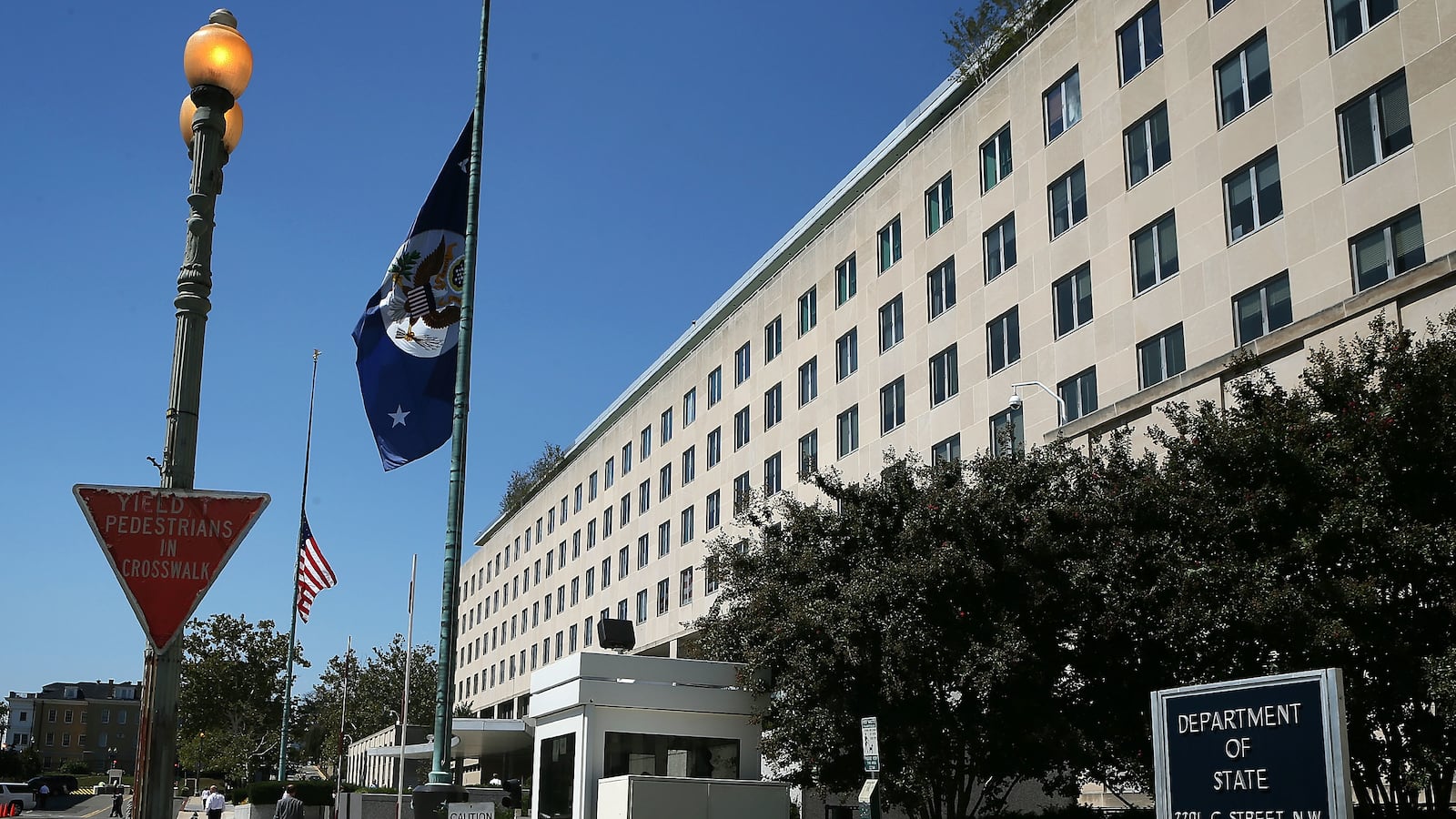One would think a pro-Israel activist might be self-aware enough to not make baseless accusations that others are dedicated to promoting the interests of foreign countries, but one would be wrong. At a forum hosted last week by the Tower, a web magazine launched by the Israel Project (TIP), a long-time pro-Israel activist suggested just that. The remarks were first reported on the anti-Zionist website Mondoweiss. I asked the reporter, Alex Kane, for a copy of his tape so I could get the full context for the comments by Josh Block, the head of the Israel Project and a former spokesman for the influential American Israel Public Affairs Committee (AIPAC). Kane kindly obliged.

On the tape, an unnamed woman asks during the question and answer session why Israel isn't better prepared with counter-narratives to those which sometimes harshly criticize Israel. Block jumps at the opportunity to respond. In an apparent bid to demonstrate a challenge posed to Israel and its stateside supporters, Block gives a startling aside about the U.S. State Department. Here's that section of his answer in full:
I worked in the State Department for a while. There were a lot of Arabists in the State Department. Why? There's 22 members of the Arab League and each of them has a desk in the State Department. And that desk is staffed by Foreign Service Officers who make a career of representing their clients. They're like a suit at an ad agency, right? That's the client and they gotta come in and make a case for the client. So you've got an inbred kind of industry in the foreign policy establishment and in the dialogue is fomenting a perspective that is not sympathetic to Israel.
A little context: first, as a disclosure, I should note a nasty run-in with Block a few years ago where he, ironically, accused me and some colleagues of anti-Semitism, including a "now glib practice of deploying dual-loyalty smears" against supporters of Israel. (Despite a modicum of regrettable language, which we apologized for, the anti-Semitism charges were baseless. You can follow the links in the parenthetical disclosure in this post for more.) Secondly, Block worked in the State Department as the spokesman for the U.S. Agency for International Development, the arm of U.S. foreign policy that handles development work in foreign countries.
Now the meat: Block's accusations about State employees who push Arab states' interests—so called "Arabists"—are not new; they're a hallmark of right-wing, pro-Israel attacks on American diplomats for what's seen as hostility to Israel in the professional Foreign Service. The thinking usually goes that because these Foreign Service Officers study Arab languages and cultures, instead of being steeped in pro-Israel dogmas, they take the animus many of these Arab states hold for Israel. But Block took it a step further in describing Arab states as the "clients" of American Foreign Service Officers; that is, these U.S. diplomats are actually working for the Arab states.
I asked the State Department's deputy spokesperson Marie Harf about Block's accusation. Her answer, which both rebuts Block's accusation and explains what these diplomats do, is worth printing in full:
It's perplexing that someone who has never worked as a desk officer would try to pass himself off as an expert on the job. The reality is that our country desk officers are first-rate professionals squarely dedicated to promoting America's national security and foreign policy objectives—one of the most important of which is standing by and supporting allies like Israel. They work to understand their respective countries and the thinking that drives their foreign policy—and then they communicate that knowledge to senior policy makers to help them advance U.S. interests. To allege they are biased is to fundamentally misunderstand their role and the value they bring to tackling U.S. foreign policy and national security priorities all around the world.
Needless to say, neither do career Foreign Service Officers—our nation's professional diplomats—think too highly of Block's accusation. As the life and tragic death of Amb. Chris Stevens—an Arabic speaker who was killed while leading the U.S. mission to Libya—ably demonstrates, the men and women of the Foreign Service literally lay their lives on the line to serve their country. The Princeton professor Daniel Kurtzer, who, among other illustrious appointments in his 29-year Foreign Service career, helmed the American missions in both Tel Aviv and Cairo, responded promptly when I asked about Block's attack.
"Block’s assertions are specious and without foundation," Kurtzer wrote in an e-mail. "Foreign Service professionals represent United States interests and policy. They provide value-added analysis and policy ideas, based on many years of experience and their expertise. To assert otherwise is to malign these public service professionals."
He added: "Block owes the women and men of Foreign Service an apology."
UPDATE: Seventeen minutes after the publication of this report, Josh Block issued something of an apology on Twitter for his remarks. "Apologies to any1 offended by the words of my remark about the notion of Arabist tradition described far more eloquently by Francis Fukuyama," he wrote. He continued in another tweet: "should have quoted Francis Fukuyama, not paraphrased him inelegantly or said desk officer. My bad."

The limits of Block's contrition and his reference to Stanford political scientist and sometime neoconservative intellectual Francis Fukuyama would seem to render the apology hollow. Fukuyama has said Arabists are "an elite within an elite, who have been more systematically wrong than any other area specialists in the diplomatic corps. This is because Arabists not only take on the cause of the Arabs, but also the Arabs' tendency for self-delusion."






